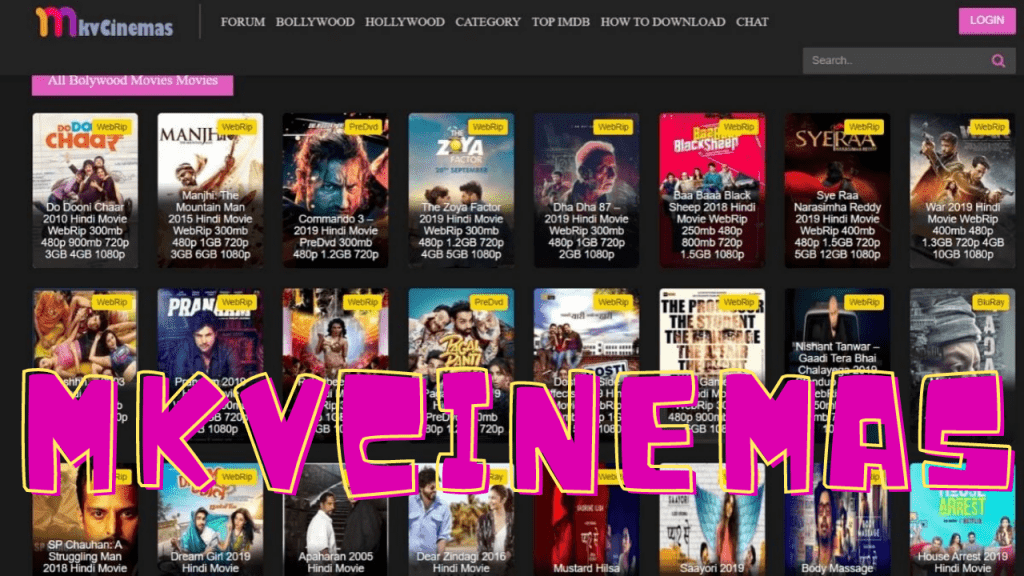Exploring The Legacy Of MKVCinemas Old
For movie enthusiasts, MKVCinemas has long been a household name, synonymous with the latest blockbuster releases and classic cinema. The platform has established itself as a go-to for accessing movies in high quality, catering to a diverse audience with varied tastes. However, the term "MKVCinemas old" evokes a sense of nostalgia, taking us back to the earlier days of the site, when it served as a crucial link for fans seeking to explore an extensive library of films.
As we delve into the concept of MKVCinemas old, it's essential to reflect on its evolution and the impact it has had on the digital landscape of film distribution. From humble beginnings to becoming a significant player in the online movie-sharing realm, MKVCinemas has been a trendsetter. This article will explore what makes MKVCinemas old a significant part of cinema history and how it has shaped the way audiences consume films today.
In this examination, we will address key questions surrounding the platform's origins, its user experience, and how it compares to other film-sharing sites. By shedding light on MKVCinemas old, we aim to celebrate its contributions while also considering its relevance in a rapidly changing digital environment.
What is the Origin of MKVCinemas Old?
The origins of MKVCinemas date back to a time when the internet was still in its infancy as a medium for film distribution. Founded by a group of film lovers, it began as a small website dedicated to sharing movies in the MKV format, which allowed for high-quality video and audio without compromising file size. This innovation quickly caught on, leading to a loyal user base that thrived on accessing the latest releases and classic films.
How Did MKVCinemas Old Evolve Over Time?
As technology advanced, so did MKVCinemas. The site expanded its offerings to include not only movies but also TV shows, documentaries, and even regional cinema. This evolution kept pace with changing audience preferences, enabling it to maintain its relevance in an ever-competitive landscape. The introduction of user-friendly features, such as easy navigation and advanced search functions, further solidified its position as a preferred source for film enthusiasts.
What Impact Did MKVCinemas Old Have on Film Distribution?
MKVCinemas old played a pivotal role in democratizing access to films, particularly in regions where traditional media distribution was limited or expensive. By providing free access to movies, it enabled a broader audience to engage with global cinema. However, this practice also raised questions about copyright infringement and the ethical implications of sharing content without proper licensing.
What Features Made MKVCinemas Old Stand Out?
- User-Friendly Interface: The design of MKVCinemas allowed users to easily browse and discover movies.
- Variety of Content: From classic films to the latest releases, MKVCinemas offered a diverse library catering to all tastes.
- High-Quality Downloads: The emphasis on quality ensured that users had a satisfying viewing experience.
- Community Engagement: The platform fostered a community of film lovers who shared recommendations and reviews.
What Challenges Did MKVCinemas Old Face?
Despite its popularity, MKVCinemas old was not without challenges. Legal issues regarding copyright infringement often loomed over the platform, leading to periodic shutdowns and domain changes. Additionally, the rise of streaming services introduced new competition, forcing MKVCinemas to adapt to changing user behaviors and preferences.
How Does MKVCinemas Old Compare to Modern Alternatives?
Today, numerous streaming platforms offer legal and subscription-based access to films and TV shows. While MKVCinemas old provided free access, modern alternatives like Netflix, Hulu, and Amazon Prime Video provide a more secure and legally sound means of accessing content. However, the nostalgia associated with MKVCinemas old remains, as it represents a time when film enthusiasts sought community-driven platforms for film exploration.
What is the Future of MKVCinemas?
The future of MKVCinemas remains uncertain as digital landscapes continue to evolve. While the original platform may no longer represent the primary way audiences access films, the spirit of MKVCinemas lives on in the hearts of many. As new platforms emerge and technologies advance, the legacy of MKVCinemas old serves as a reminder of the ever-changing nature of film distribution and audience engagement.
Conclusion: The Enduring Legacy of MKVCinemas Old
In conclusion, MKVCinemas old will always hold a special place in the history of online film sharing. Its impact on the accessibility of cinema and the community it fostered among film lovers is irreplaceable. While the digital landscape continues to change, the essence of MKVCinemas old reminds us of the importance of exploring diverse narratives and connecting through the shared love of film.
Article Recommendations


